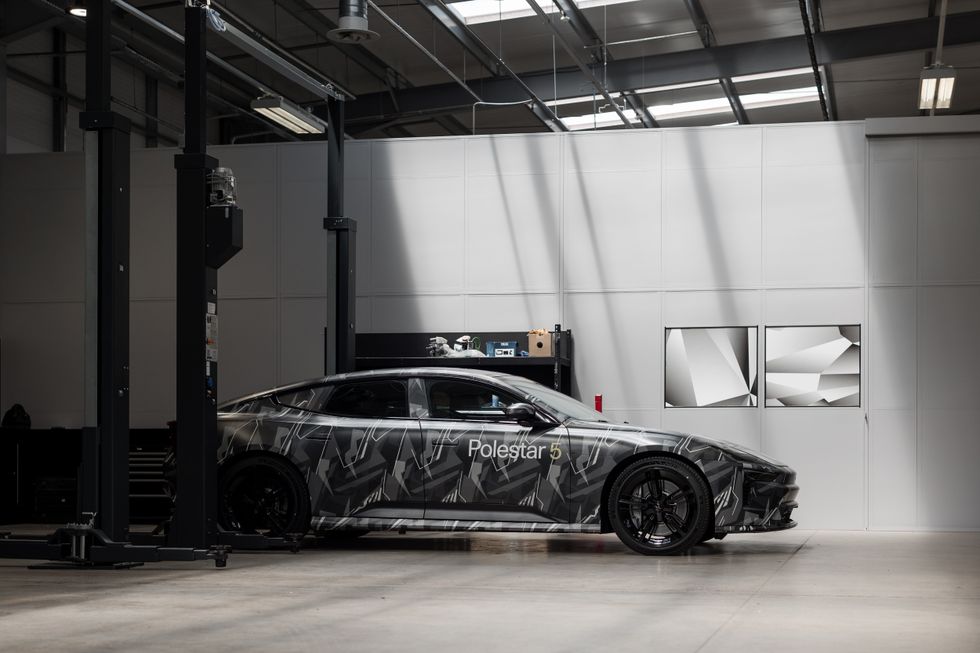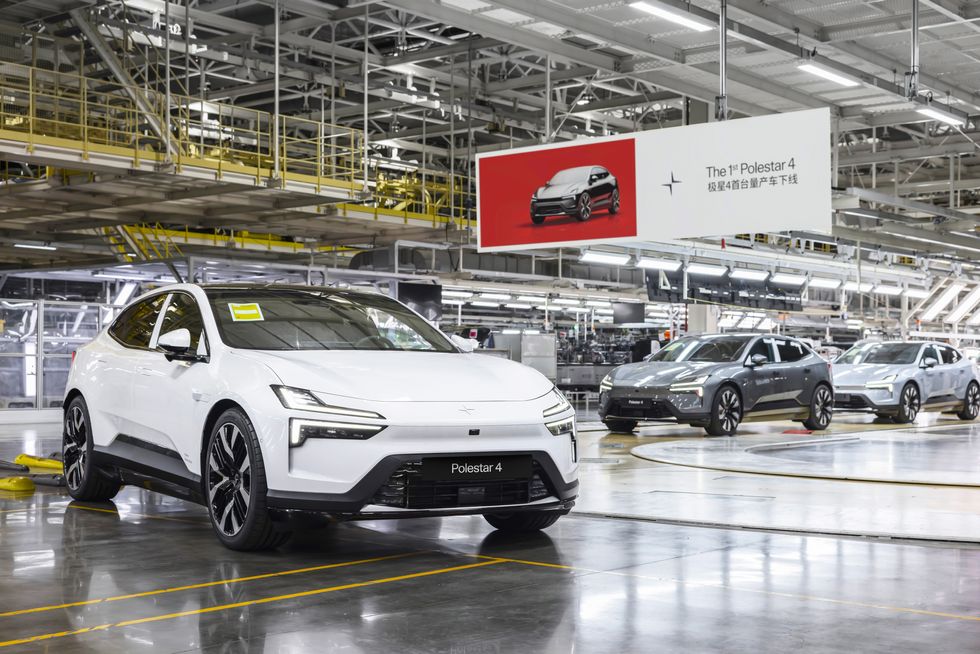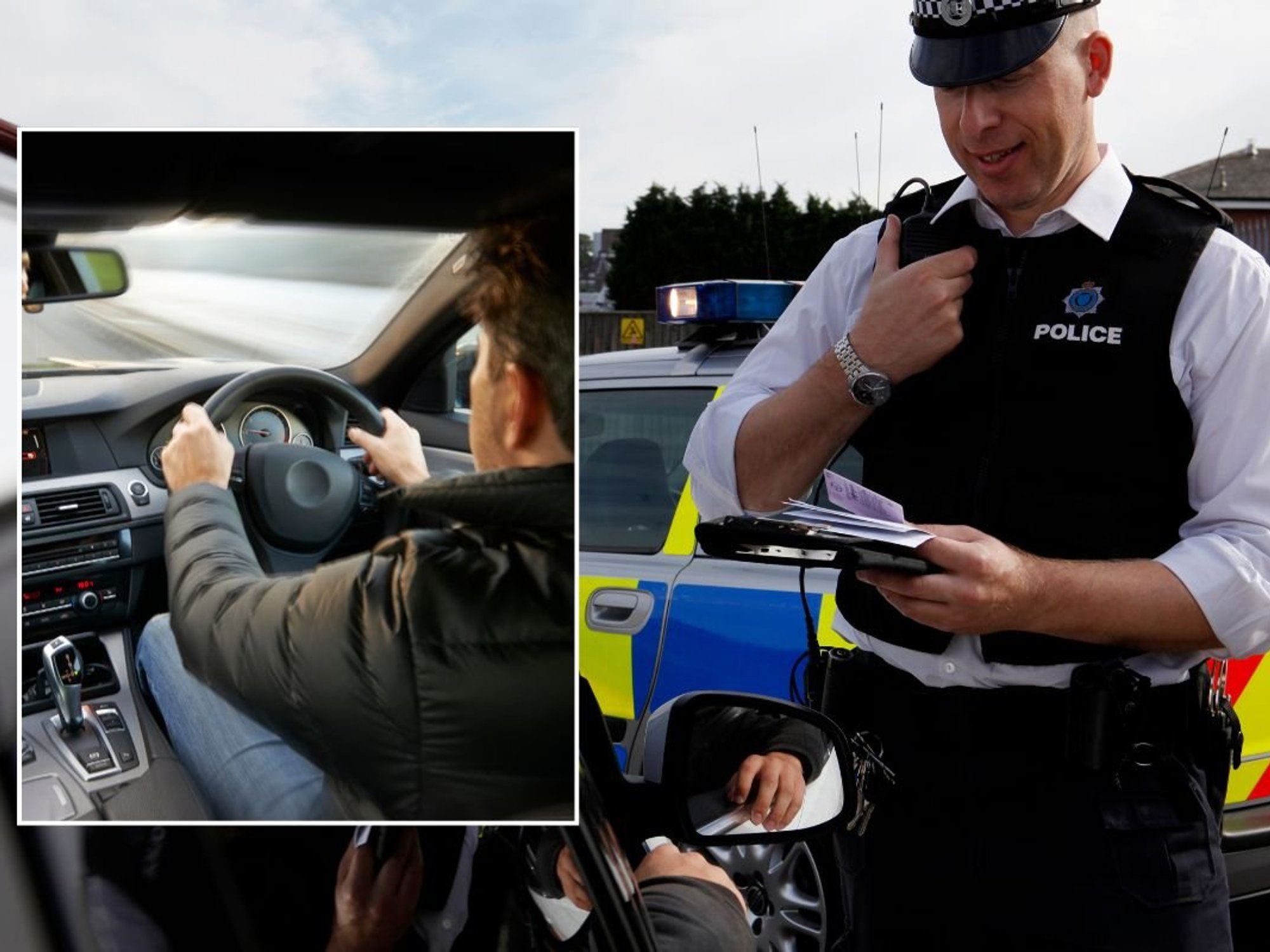Slow electric vehicle uptake sparks nationwide ‘anxiety’ with carmakers pleading for urgent support

Polestar boss calls for more electric car incentives to be introduced
Don't Miss
Most Read
Latest
The new Labour Government has been urged to introduce more incentives to encourage drivers to switch from petrol and diesel cars to electric vehicles.
It comes after industry experts argue that current efforts are insufficient to meet the country's ambitious environmental targets.
Matt Galvin, managing director of Polestar UK, has criticised the lack of Government support, stating that "UK markets are the worst supported in Europe for any government incentives" to help people transition to EVs.
Despite recent announcements by Chancellor Rachel Reeves to maintain Benefit-in-Kind tax rates for electric company cars, concerns remain about the accessibility of EVs for everyday consumers.
Do you have a story you'd like to share? Get in touch by emailing motoring@gbnews.uk

Polestar launched zero per cent finance campaign
| POLESTARNow the automotive industry is pushing for additional measures, such as reduced VAT on electric cars and public charging, to accelerate the adoption of zero-emission vehicles.
Reeves recently announced the maintenance of Benefit-in-Kind tax rates for electric company cars in the Autumn Budget.
The discounted rate for electric cars will continue to rise by one percentage point per year until 2027/28 across all tax bands, while rates for petrol and diesel cars will increase yearly until hitting 37 per cent.
Reeves stated: "We want to support the take up of electric vehicles. So, I will maintain the incentives for electric vehicles in company car tax from 2028 and increase the differential between fully electric and other vehicles in the first year rates of Vehicle Excise Duty from April 2025."
But despite the extended benefits, Galvin highlighted the need for improved charging infrastructure to address "charging anxiety" among potential EV buyers.
He suggested that the Government should halve VAT on new electric cars and reduce VAT on public charging to five per cent, in line with domestic charging rates. Galvin emphasised that range anxiety has been largely replaced by concerns about charging availability and convenience.
He explained: "I don't think it's so much range anxiety that's the issue, it's charging anxiety. It's if I'm caught out, where can I charge? Is it easy? Am I going to be stuck there waiting for hours?"
The Polestar UK boss also called for the Government to "step up and assist not just Polestar but the wider automotive industry, to help customers make that switch" to electric vehicles.
Polestar has already taken proactive steps to make electric vehicles more accessible and appealing to consumers.
In a bid to increase consumer appetite, the company has launched a zero per cent finance campaign across its entire range to reduce costs for customers. Additionally, Polestar is expanding its retail presence in the UK, aiming to double its footprint from 8-9 spaces to 17-18.
He added: “We run lots of test drive events all around the country to try and expose that experience to as many people as possible, because I firmly believe that once you've tried it, and you've experienced the savings that go with it... then actually, it becomes quite a compelling argument."
The firm is also leveraging advanced technology to address charging concerns. Polestar vehicles use a version of Google Maps that automatically plots charging stops and allows drivers to customise their desired battery charge level upon arrival.
LATEST DEVELOPMENTS:

The car company called on the Labour Government to offer more incentives to drivers
| POLESTARA spokesperson for the Department for Transport said: "We are committed to supporting drivers and manufacturers as we phase out the sale of new cars that rely solely on internal combustion engines by 2030."
However, industry experts argue that current incentives are insufficient. John Wilmot, CEO of LeaseLoco, noted that while company car drivers benefit from reduced costs, "everyday consumers are left without the same level of encouragement to buy EVs."
Under the current UK plans to meet its 2050 net zero goals, it requires all new car sales to be electric by 2035, with at least 22 per cent electric by this year.










